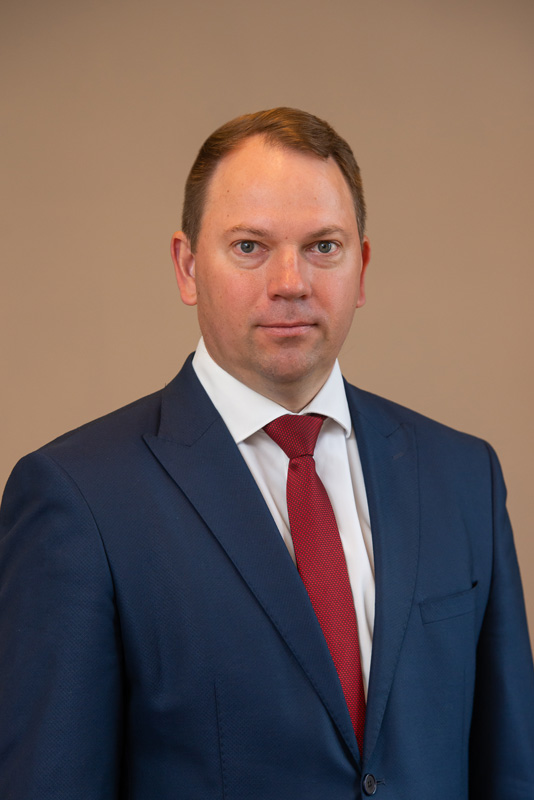Degree: Doctor of Science (Ph.D.) in mechanics and mechanical engineering
Duration and fee of studies:
- full-time studies: 3 years
- EU/EEA/Swiss citizens: 3250 EUR / year
- Other country citizens: 3600 EUR / year
Language of instruction: English
Amount of credits: 120 credit points or 180 ECTS

European Qualifications Framework (EQF) level: 7
International Standard Classification of Education (ISCED) level: 7
The programme aims
- Expand student knowledge about the research area of their choice (including theoretical foundations of optoelectronics and special methods used for its study) and the opportunity to acquire knowledge about a broader area in engineering research, including one or several applications of lasers, for example, in production (welding, cutting, heat treatment, modification of surfaces, photochemistry), biology, medicine, manufacturing and commerce, entertainment and recreation, imaging, measurement, and process control, etc.
- Develop skills in scientific literature analysis, preparation/writing of scientific articles, oral presentation of the results obtained (including at conferences), ensuring the publication of research results in scientific journals with a high citation index.
- Train specialists with specific research and analytical skills who would be prepared for post-doctoral research at higher education institutions and scientific organisations, or work in the industrial sector – in public service manufacturing engineering, electrical engineering and electronics, healthcare, environmental engineering, military engineering, and other spheres related to laser technologies.
- Train highly qualified experts (specialists) and researchers who are able to create new knowledge in the field and obtain the degree of a doctor of sciences (Ph.D.) that meets international standards.
Results of the study programme
- Understands the theory of photonics (laser technologies), scientific findings, current scientific trends in Europe and the world, including from an interdisciplinary perspective.
- Understands the importance of laser technologies in the development of the national economy, solving technical problems of certain sectors, development of innovations.
- Knows and is able to choose reasonably modern research methods, adapt the existing ones and develop new methods based on an interdisciplinary approach to research.
- Is able to demonstrate the basic and specialized knowledge in the field of laser technologies and a critical understanding of this knowledge, which corresponds to the highest level of scientific achievement.
- Is able to plan and conduct research related to laser technologies, prepare publications to be cited at the international level, patent applications and create innovations.
- Is able to provide a new understanding of the existing knowledge and is able to synthesize new knowledge in the field of laser technologies and mechanical engineering, focusing on its application in practice.
- Is able to demonstrate and justify scientific approach to problem solving, take responsibility and initiative working individually, in a team or leading other people's work, including cooperate in international context.
- Is able to communicate both orally and in writing about his/her field of scientific activity with the scientific community and society, providing a new understanding of it.
- Is able to independently and systematically find, analyse and synthesize information using scientific databases, patents and other sources of information.
- Is able to put forward a research idea, plan and manage high-level national and international scientific projects.
- Is able to manage research processes in companies, solve innovation tasks using the latest research-based knowledge. Is able to increase scientific qualification.
- Is able to transfer new knowledge to students constantly, demonstrate scientific and professional independence.
Opportunities for graduates

Admission requirements
1. Discussion on the topic of research.
Doctoral study programme Laser Technologies is available to individuals with master`s degree in engineering, natural sciences or equivalent higher professional education in engineering or natural sciences if study courses in the amount of at least 10 CP have been mastered within a master`s study programme or a master`s thesis related to the field of laser technologies have been developed. English language: at least level B2. If the master`s degree has not been obtained in engineering or natural sciences, or in the related field of professional activity, the applicant has to prove professional experience/non-formal meeting the requirements of LQF level 7 (knowledge, skills, and competencies in mechanical engineering and mechanics) in accordance with the procedure laid down in the Cabinet Regulation No. 505 ‘Terms for the Recognition of Competences Acquired Outside Formal Education or Professional Experience and Learning Outcomes Obtained in Previous Education.
The applicant must submit a description of the research topic or a problem in laser technologies (up to 10 pages).
2. English language proficiency (level B2)
To be submitted: A document certifying language proficiency issued by an international testing institution within the past five years, which certifies the foreigner’s proficiency in English at least at the level B2, except if previous education has been acquired in English.
3. Online interview.
More information and Study plan
Autumn intake
- Application until 1 July 2024
- Studies start in September 2024